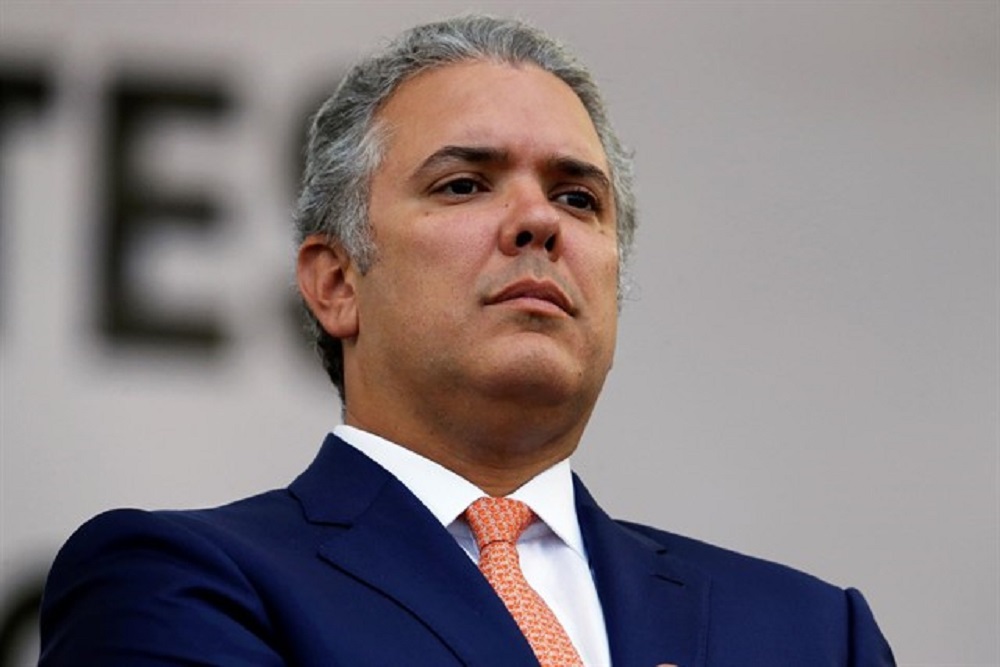RIO DE JANEIRO, BRAZIL – The protests against the government of Iván Duque in Colombia complete seven days amid economic demands, rapprochement between demonstrators and authorities and cases of repression such as the one that led to the death of young Dilan Cruz.

Trade unions and student organizations took to the streets on Wednesday in a new general strike called a few hours earlier. The mobilizations, which began with uneven support in Bogotá and triggered blockades in Cali, are exacerbating the pressure on the president. He is blaming opposition sectors, which he calls “pyromaniacs”, for “intending to conquer with violence what they did not conquer at the polls”.
Duque’s words seek to frame the protests that began last Thursday within a strictly political dispute. “There are people who want to politically capitalize on the chaos; they want to politically capitalize on the call for instability, and it seems to me that this is not a responsible call […] The calling for those exercising political leadership is responsibility,” he reiterated in an interview with Blu Radio broadcaster.
However, the demonstrations were driven by more than just a clash between parties, despite the attempts of opposition leader Gustavo Petro to leverage from them. And the incidents of vandalism that have occurred in recent days do not reflect the general mood driving the claims of workers’ organizations and the student movement.
The call for a national strike was prompted by the death of Dilan Cruz on Monday night, the 18-year-old who became the symbol for the protests after having been shot by a riot squad officer. The mourning for this death moved Colombia and changed the equation of protests. “There will be a national strike on Wednesday in honor of Dilan,” announced Diógenes Orjuela, president of the Unitary Workers’ Central.
The president began a round of negotiations with the main social players, but the dialogue with the unions was stalled. Their demands have not changed substantially and are linked to the Executive’s economic policy, the so-called ‘paquetazo’ (brutal economic decisions), starting with the retreat of the draft law on tax reform.
In addition to this, there was repudiation and concern over the cases of police repression. Several international bodies have voiced concern in recent days about the excessive use of force during the demonstrations. Both the United Nations and the NGO Human Rights Watch have demanded an internal investigation by the Prosecutor’s Office to determine who is responsible.
Based on these principles, the union leaders have also included in the 13-point list handed over to Duque the disbanding of the Mobile Anti-Disturbance Squad, a unit used to acting unscrupulously since the years of armed conflict with the now extinct FARC (Revolutionary Armed Forces of Colombia) guerrilla or in confrontations with the NLA (National Liberation Army).
The discussion agenda also includes the rejection of the social welfare reform, the government’s commitment to refrain from implementing new labor reforms, and calls on the authorities to discuss with the New Citizen Movement for Peace the implementation of the agreements reached in 2016 between the state and the FARC.
The protests somehow reflect the country’s new priorities, which despite not having solved the problem of violence on the field, has left a long war behind.
The Government has agreed for the time being to amend the tax reform. The president considered the requests and on Tuesday, after the announcement of the new general strike call, made a public appearance to announce the introduction of three days without VAT per year for families and businesses to make purchases, new returns, health discounts for retirees and an employment program for youths.

Notwithstanding, Duque has not yet succeeded in containing the pressure caused by the demonstrations and his management of the crisis has cost him greater social unrest, on the one hand, and criticism from the most radical sectors of the right-wing and his party, the Democratic Center, on the other.
Support from Washington
The US Secretary of State, Mike Pompeo, spoke on Wednesday by phone with Duque. As he reported on Twitter, he expressed his support for the national dialogue that he has begun, with no tangible results for the time being.
In his opinion, these talks represent an “opportunity for the people of Colombia to work together to advance towards peace, security, and prosperity”.
Washington’s move came in the midst of a new national strike and after a week of protests that began last Thursday and so far are showing no signs of coming to an end.
Source: El Pais

